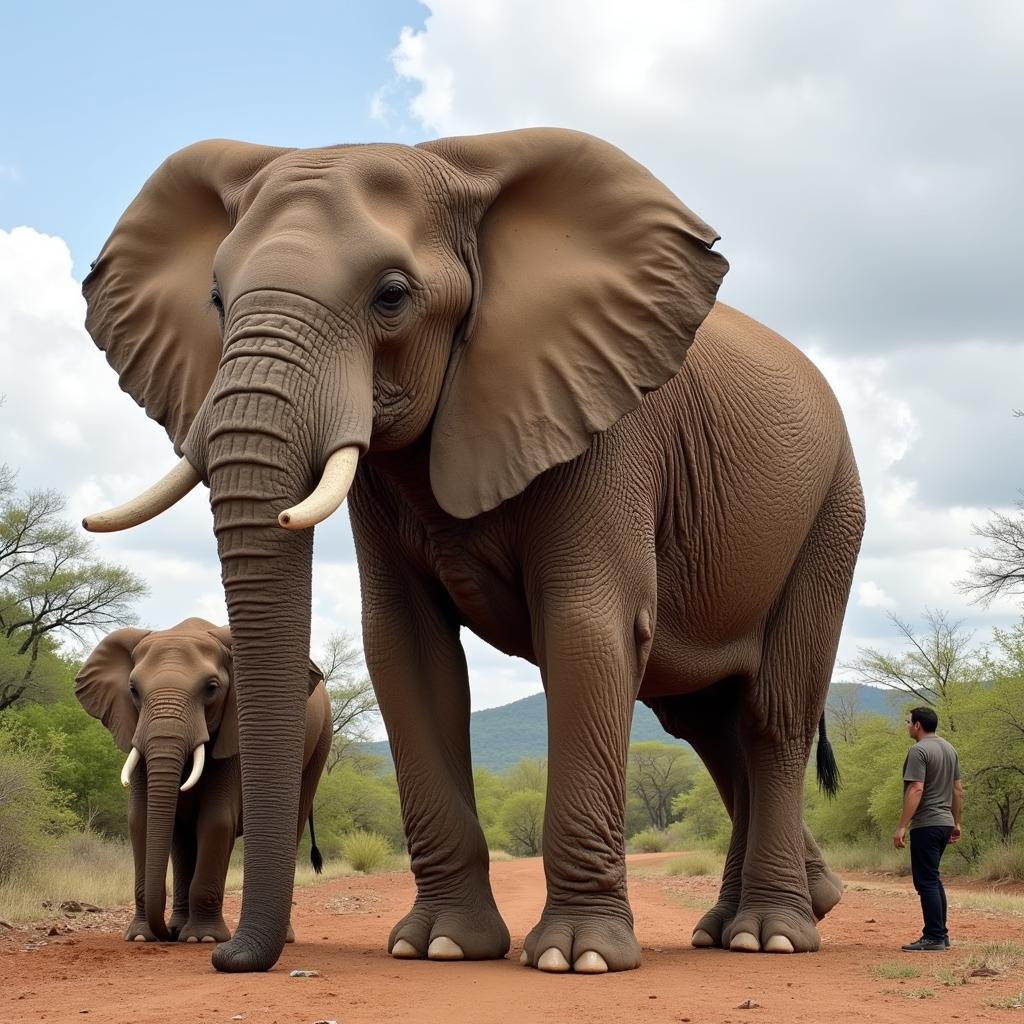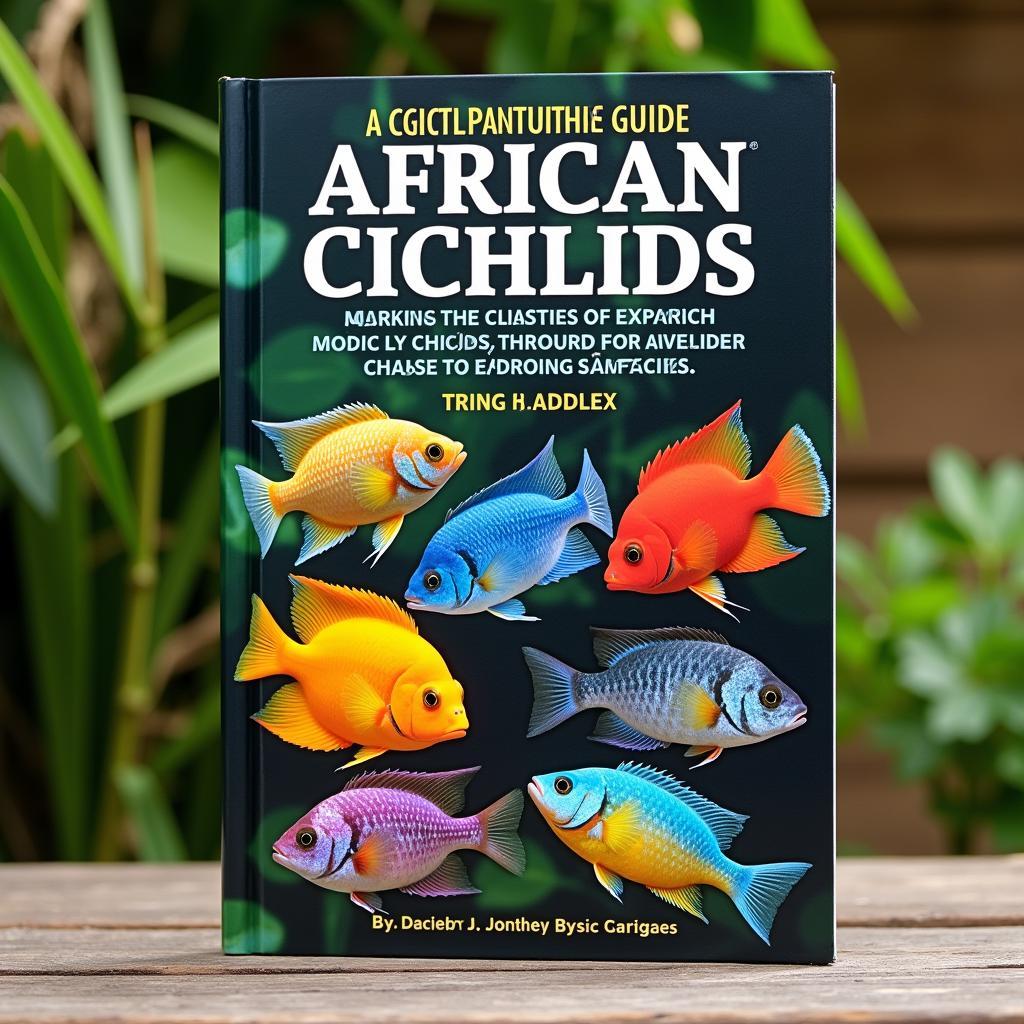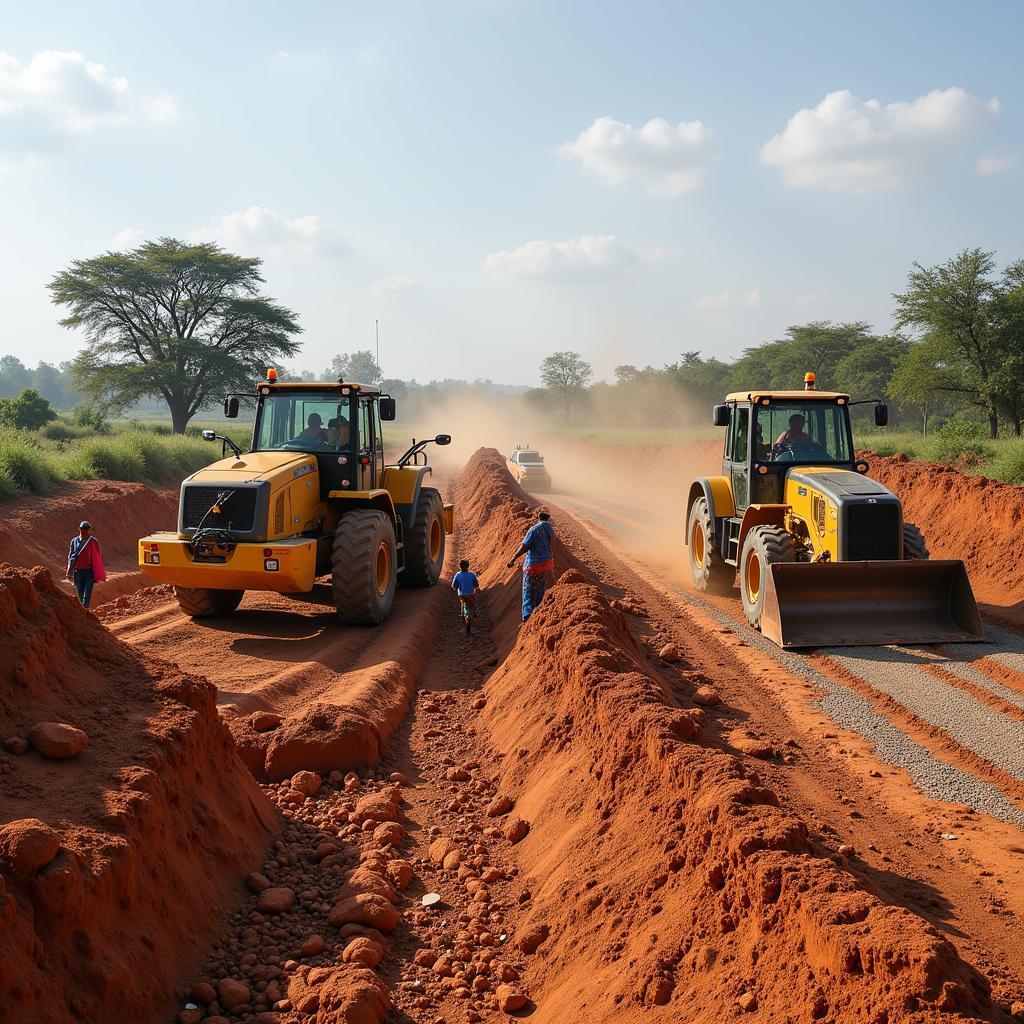African Dystopias: Exploring the Dark Side of the Continent
African dystopian literature has emerged as a powerful force in recent years, offering a unique perspective on the challenges and anxieties facing the continent. From drought-stricken landscapes to oppressive regimes, these stories explore the complexities of social, political, and environmental issues, forcing us to confront the potential realities of a dystopian future.
Exploring the Roots of African Dystopian Fiction
The rise of African dystopian fiction can be traced back to a multitude of factors, including the continent’s history of colonialism, political instability, and economic inequality. These themes are often interwoven into the fabric of dystopian narratives, highlighting the systemic issues that can lead to a bleak future.
“The dystopian genre is a powerful tool for exploring the anxieties of our times, and in Africa, those anxieties are particularly acute,” says Dr. Amara Nduati, a renowned scholar of African literature. “These stories offer a stark warning about the consequences of unchecked power, environmental degradation, and social injustice.”
What Makes African Dystopias Unique?
While dystopian fiction often draws inspiration from Western narratives, African Dystopias offer a distinct perspective. The narratives are often rooted in the continent’s rich cultural heritage, exploring themes such as the power of tradition, the importance of community, and the impact of globalization.
- Emphasis on Environmental Issues: Many African dystopian novels explore the devastating consequences of climate change, resource depletion, and environmental degradation, reflecting the real-world challenges facing the continent.
- Political Corruption and Authoritarianism: The narratives often expose the dangers of unchecked power and the corrupting influence of political systems, highlighting the struggles for democracy and human rights.
- Social Inequality and Exploitation: African dystopian literature often depicts the stark realities of poverty, inequality, and exploitation, exposing the social injustices that can lead to widespread unrest and conflict.
Notable Examples of African Dystopian Fiction
Several African writers have made significant contributions to the dystopian genre, creating compelling narratives that explore the complex issues facing the continent:
- “The Famished Road” by Ben Okri: This novel, set in a fictionalized Nigerian city, explores the themes of poverty, magic, and the search for identity in a chaotic and often violent world.
- “The Graveyard of the Living” by Nnedi Okorafor: This post-apocalyptic novel set in a near-future Africa examines the impact of climate change, technological advancements, and the resilience of traditional beliefs.
- “The Book of Strange New Things” by Michel Faber: While not explicitly set in Africa, this novel explores the dystopian consequences of religious fundamentalism and the clash between modernity and tradition, drawing parallels to the African context.
The Power of Storytelling in African Dystopian Fiction
African dystopian novels serve as a powerful tool for raising awareness about the critical issues facing the continent. These stories provide a platform for dialogue, challenge existing narratives, and inspire action.
“Dystopian literature has a unique power to expose the flaws in our current systems and inspire us to imagine a better future,” says Dr. Nduati. “These stories offer a stark warning, but also a glimmer of hope, reminding us that change is possible if we are willing to fight for it.”
Exploring the Future of African Dystopian Fiction
As the continent continues to face a multitude of challenges, the future of African dystopian literature is likely to become even more relevant and influential. These stories offer a crucial lens through which to examine the complexities of African society and inspire solutions for a brighter future.
FAQ
Q: What are the key themes explored in African dystopian literature?
A: African dystopian literature explores themes of political corruption, environmental degradation, social inequality, and the impact of globalization on the continent.
Q: What makes African dystopian fiction unique?
A: African dystopian fiction offers a distinct perspective rooted in the continent’s rich cultural heritage, exploring themes such as the power of tradition, the importance of community, and the impact of globalization.
Q: Are there any specific environmental issues addressed in African dystopian fiction?
A: Yes, many African dystopian novels explore the devastating consequences of climate change, resource depletion, and environmental degradation, reflecting the real-world challenges facing the continent.
Q: How does African dystopian literature inspire action?
A: These stories provide a platform for dialogue, challenge existing narratives, and inspire action towards creating a more equitable and sustainable future for Africa.
Q: What are some of the most important African dystopian novels to read?
A: “The Famished Road” by Ben Okri, “The Graveyard of the Living” by Nnedi Okorafor, and “The Book of Strange New Things” by Michel Faber are just a few examples of impactful African dystopian novels.
Q: How can I learn more about African dystopian literature?
A: You can explore articles, reviews, and discussions online, attend literary events and workshops, and join online communities dedicated to African literature.
Q: What are some other topics related to African dystopian fiction?
A: Other topics related to African dystopian fiction include African futurism, Afrofuturism, post-apocalyptic literature, and the role of technology in shaping African societies.
Q: Where can I find more information about African dystopian fiction?
A: You can find more information about African dystopian fiction online through various platforms, including literary websites, blogs, and academic journals.
Q: How can I get involved in the African dystopian literary scene?
A: You can attend literary events, participate in online discussions, and support African authors by reading their books and sharing your experiences with others.
Q: What are some other dystopian novels from around the world that you recommend?
A: Some other dystopian novels from around the world that I recommend include “Brave New World” by Aldous Huxley, “1984” by George Orwell, “The Handmaid’s Tale” by Margaret Atwood, and “The Road” by Cormac McCarthy.
Q: What are some of the most pressing issues facing Africa today that could inspire future dystopian narratives?
A: Some of the most pressing issues facing Africa today that could inspire future dystopian narratives include climate change, political instability, economic inequality, and the rise of extremism.




